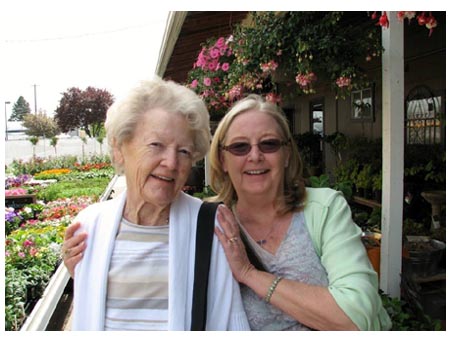Life will surprise you when you least expect it. This week my surprise was an inquiry about my book, “Daughters on Duty” that was published in 2014. I am grateful to have been given the opportunity to share my book at the L. A. Times Festival of Books coming up in April. The call was so out of the blue that I had to do some checking to verify the opportunity was real. I’m excited about sharing my experiences with others so their journey in eldercare can be easier.
Since “Daughters on Duty” was published ten years ago so much has changed in my life and in the world for that matter. My mother joined my father in heaven in September of 2015. She had been missing him for fifteen years. Her passing was a painful blessing that released her of her suffering and again joined her with the love of her life. I miss then both every day.
I am a baby boomer and there are lots of us out here. My son is beginning to realize his generation is about to experience the challenges of our sunset years. He is seeing his friends and co-workers being faced with confronting their first instances of caregiving for aging loved ones. The subtitle of the book is, A Caregivers Guide to Managing Medical Matters. There can be a myriad of different kinds of medical matters to deal with as you shepherd someone through our complicated medical environment.
My hope is that more people who are entering the space of caregiving for elders will find my book and be better prepared to find the best care for the ones you love and ways to help deal with the stress that comes with being responsible for someone’s care.
Studies show that not only do caregivers suffer from the mental distress of providing care, there are also negative changes in their physical health. As much as 20% of caregivers report progressing decline in both mental and physical health as their journey continues. No matter how much you love someone doing this work is not easy for you or them.
One of the biggest challenges I found was my mother’s resistance to asking for help. We all want to feel independent and the reality is that as we age we need help. I remember arriving at her house for a check in visit and grocery delivery only to find her arm bruised from her fingertips to her elbow. When I asked her what happened she had to admit she had fallen off the steps the day before. I promptly took her to the emergency room where an x-ray showed she had broken her wrist.
When asked why she hadn’t called to tell me she said she didn’t want to be a bother. I can’t tell you how often in the years I was involved in her care that she said that to me. I’m sure it’s a common refrain for many people both providing and receiving care. This is an example of why it’s so important to look for signs that someone needs help instead of waiting until they ask or an emergency occurs.
In spite of the challenges that being a caregiver presents it is something I am grateful to have done for those I loved and hopefully the things I learned along the way will help someone else have an easier time doing the loving and important work.
